Sleep is one of the most important pillars of health, yet millions of people around the world struggle with insomnia or poor-quality rest. While lifestyle choices, stress, and screen time play big roles in sleep quality, nutrition is often overlooked. The foods you eat before bedtime can either disrupt your sleep or help you drift off naturally.
Certain foods contain sleep-promoting nutrients like melatonin, tryptophan, magnesium, and calcium, which play vital roles in regulating your sleep cycle. By adding these foods to your diet, you can improve relaxation, fall asleep faster, and enjoy deeper, more restorative rest.
Here, we’ll explore the 12 best sleep inducing foods to help you sleep soundly, backed by science, along with tips on how to include them in your nightly routine.

12 Best Sleep Inducing Foods
1. Almonds
Almonds are a powerhouse of magnesium, a mineral known to improve sleep quality by relaxing muscles and reducing cortisol (the stress hormone). They also contain melatonin, which helps regulate your sleep-wake cycle.
How to enjoy: Snack on a handful of raw almonds before bed, or add almond butter to a slice of whole-grain toast.
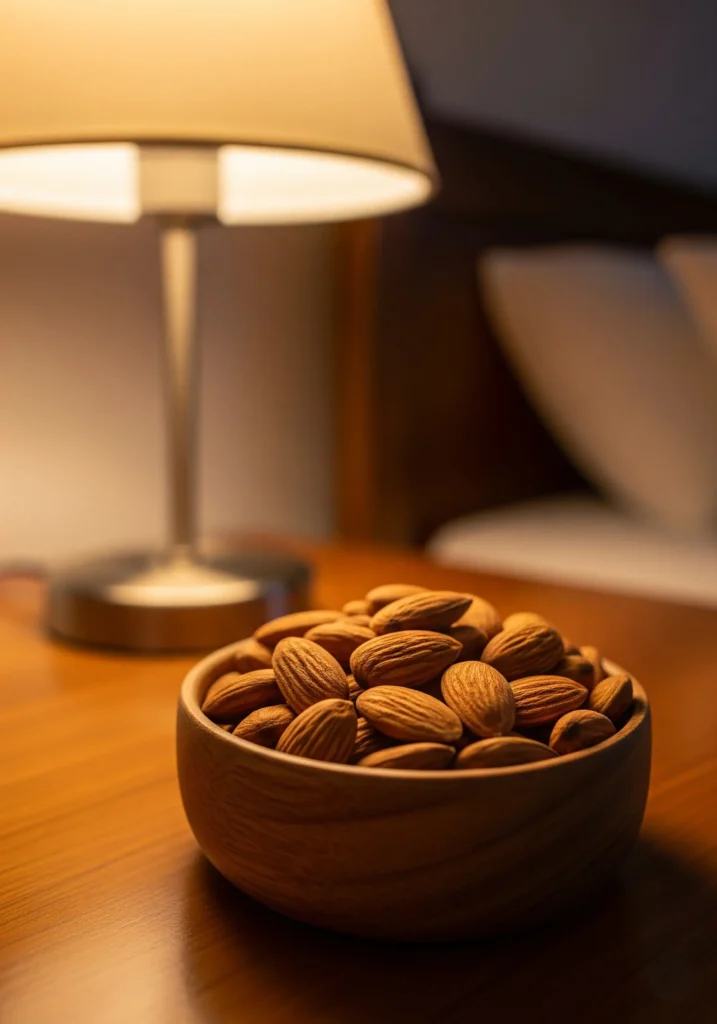
2. Kiwi
Kiwi is one of the best fruits for sleep thanks to its high serotonin content. Research suggests that eating kiwi an hour before bed can significantly improve sleep duration and efficiency.
How to enjoy: Eat one or two fresh kiwis as a light bedtime snack.
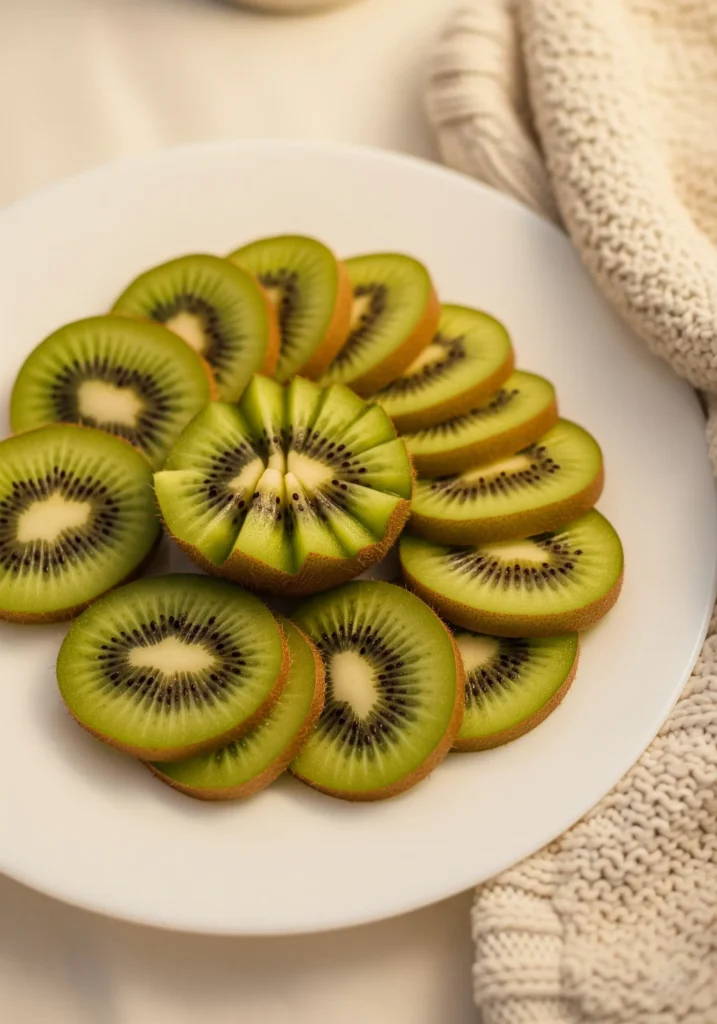
3. Warm Milk
This age-old remedy has scientific backing. Milk contains tryptophan and calcium, which help the brain produce melatonin. Warm milk, in particular, creates a soothing effect, making it easier to fall asleep.
How to enjoy: Sip a small glass of warm milk 30 minutes before bed.
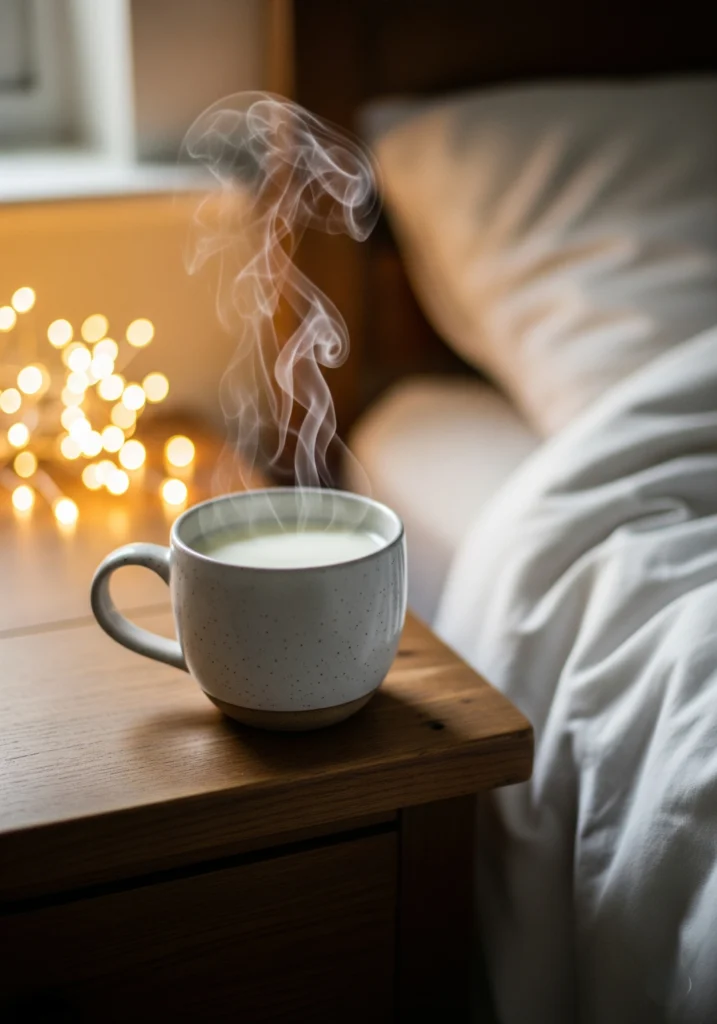
4. Turkey
Ever wondered why you feel sleepy after Thanksgiving dinner? Turkey is rich in tryptophan, which increases serotonin levels, leading to better sleep. Its high protein content also helps you stay satisfied overnight.
How to enjoy: Pair a small serving of turkey breast with whole-grain crackers in the evening.
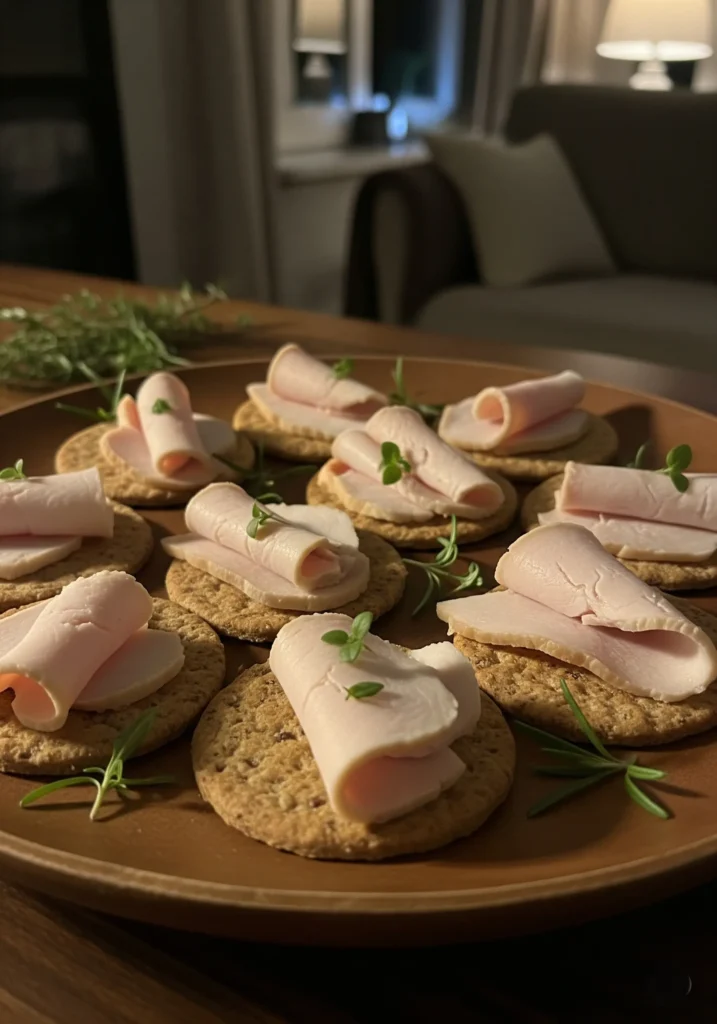
5. Cherries (Especially Tart Cherries)
Cherries are one of the few natural food sources of melatonin. Studies show that drinking tart cherry juice can improve sleep duration and reduce insomnia.
How to enjoy: Eat a handful of fresh cherries, or sip on tart cherry juice before bedtime.
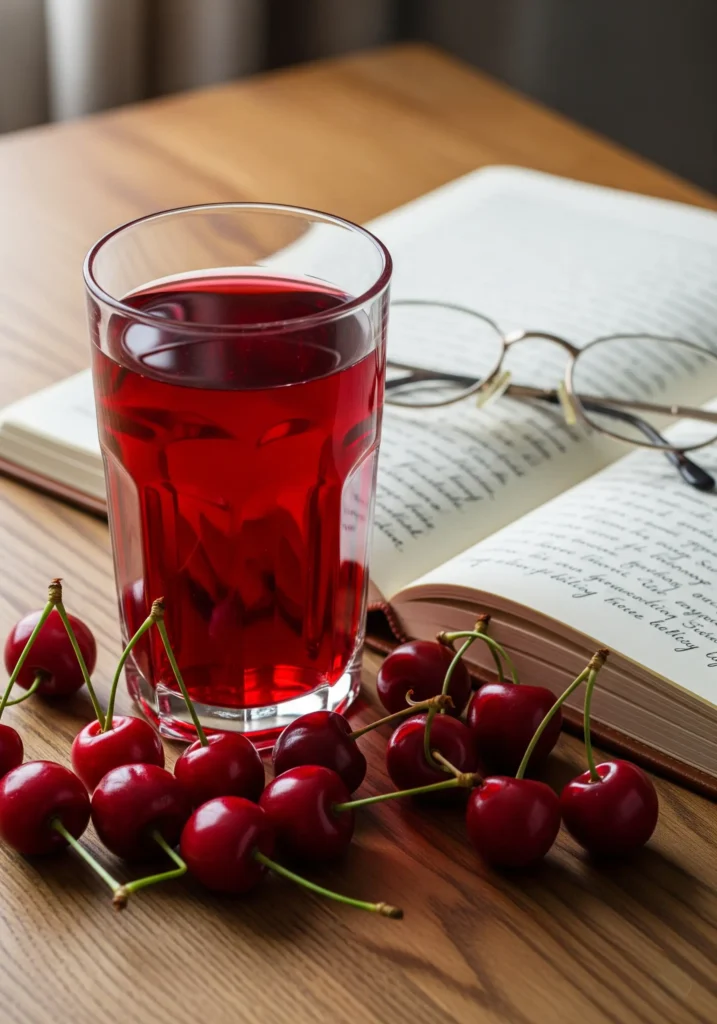
6. Bananas
Bananas are loaded with potassium and magnesium, both of which relax muscles and nerves. They also contain tryptophan, making them a perfect natural sleep aid.
How to enjoy: Slice a banana over oatmeal or blend it into a bedtime smoothie.
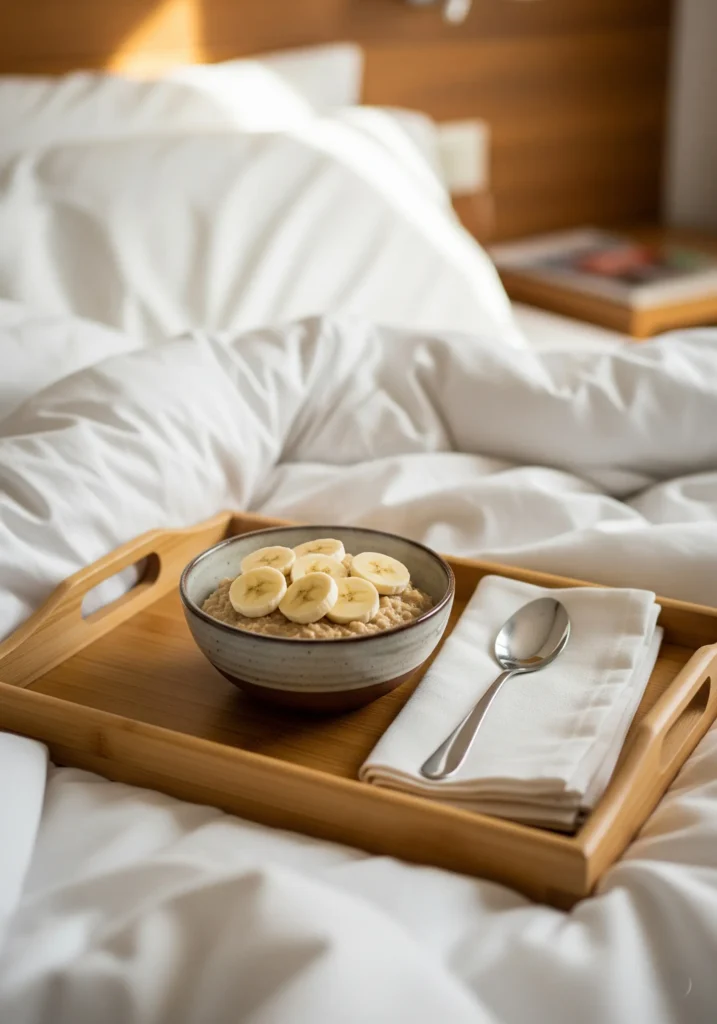
7. Oatmeal
While often eaten at breakfast, oatmeal is also a great nighttime snack. It contains complex carbs that help tryptophan reach the brain faster, as well as melatonin to regulate sleep cycles.
How to enjoy: Prepare a small bowl of warm oatmeal topped with honey and banana slices.
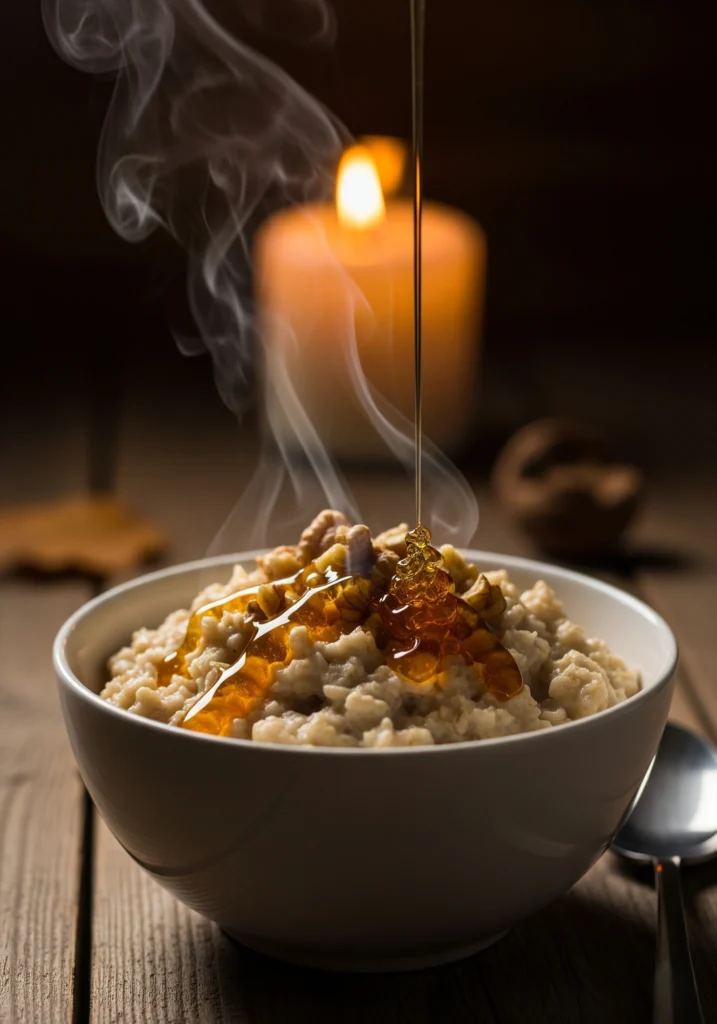
8. Fatty Fish (Salmon, Tuna, Mackerel)
Fatty fish are rich in omega-3 fatty acids and vitamin D, both of which boost serotonin production. This, in turn, helps regulate melatonin and improves overall sleep quality.
How to enjoy: Include salmon or mackerel in your dinner at least 2–3 times a week.
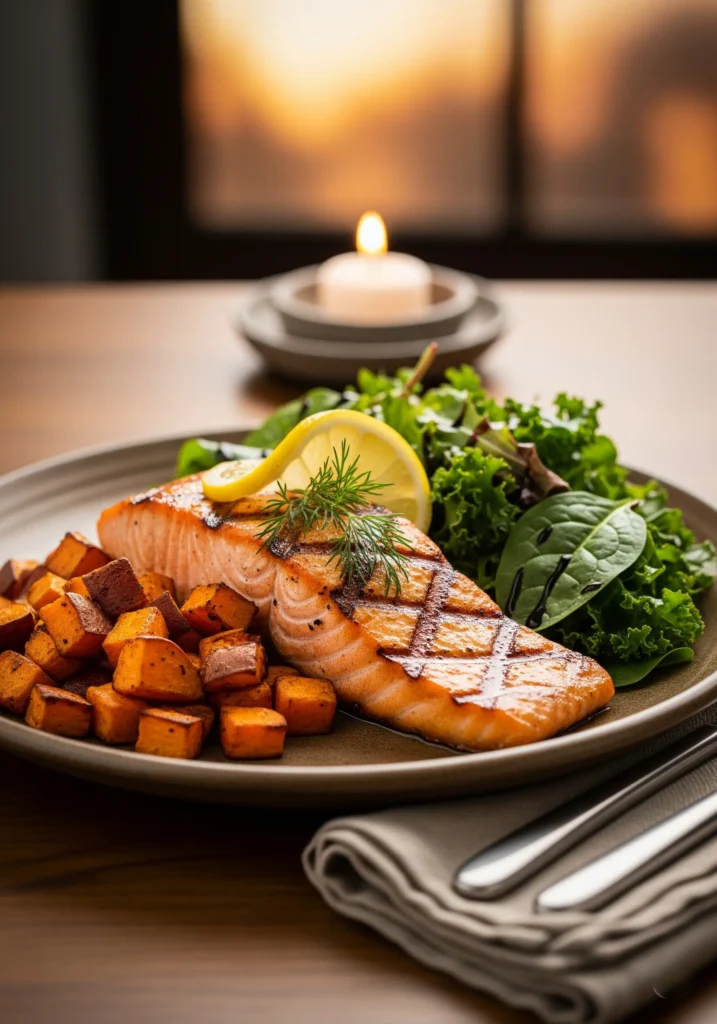
9. Walnuts
Walnuts provide a natural source of melatonin, omega-3 fatty acids, and magnesium. Eating them before bed can help improve sleep efficiency and reduce nighttime awakenings.
How to enjoy: Snack on a small handful of walnuts or sprinkle them over yogurt.
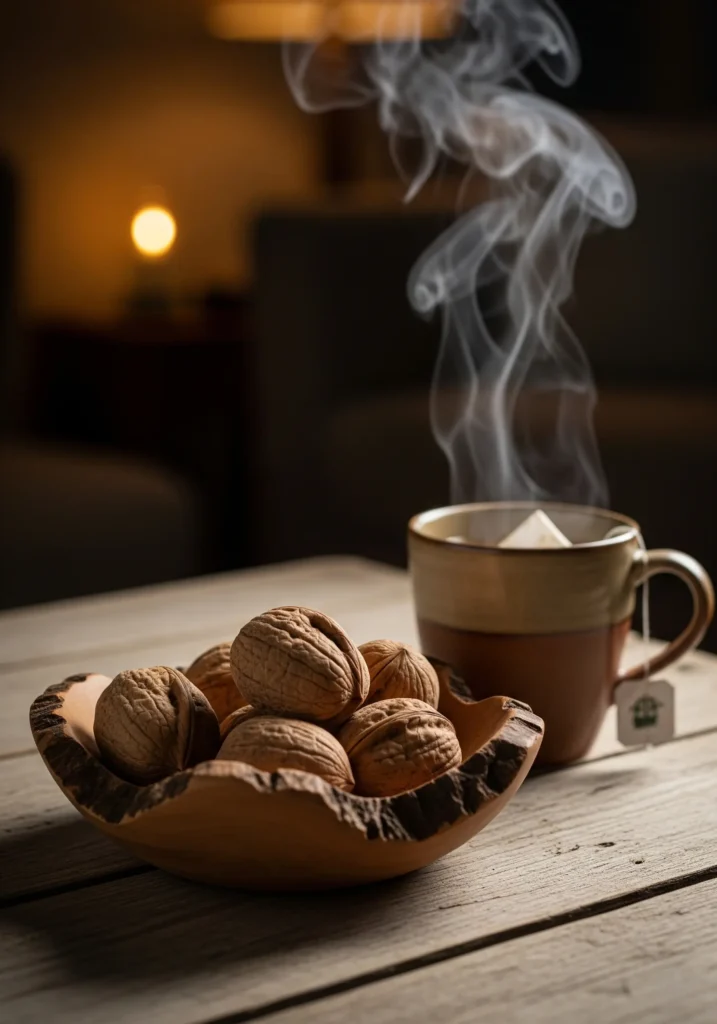
10. Chamomile Tea
While not technically a food, chamomile tea deserves a spot on this list. It contains apigenin, an antioxidant that binds to brain receptors and promotes relaxation, making it easier to fall asleep.
How to enjoy: Brew a cup of chamomile tea and sip it slowly 20–30 minutes before bedtime.

11. Sweet Potatoes
Sweet potatoes are rich in complex carbs, potassium, and magnesium, which calm the nervous system and promote restful sleep.
How to enjoy: Roast or mash sweet potatoes as a part of your evening meal.
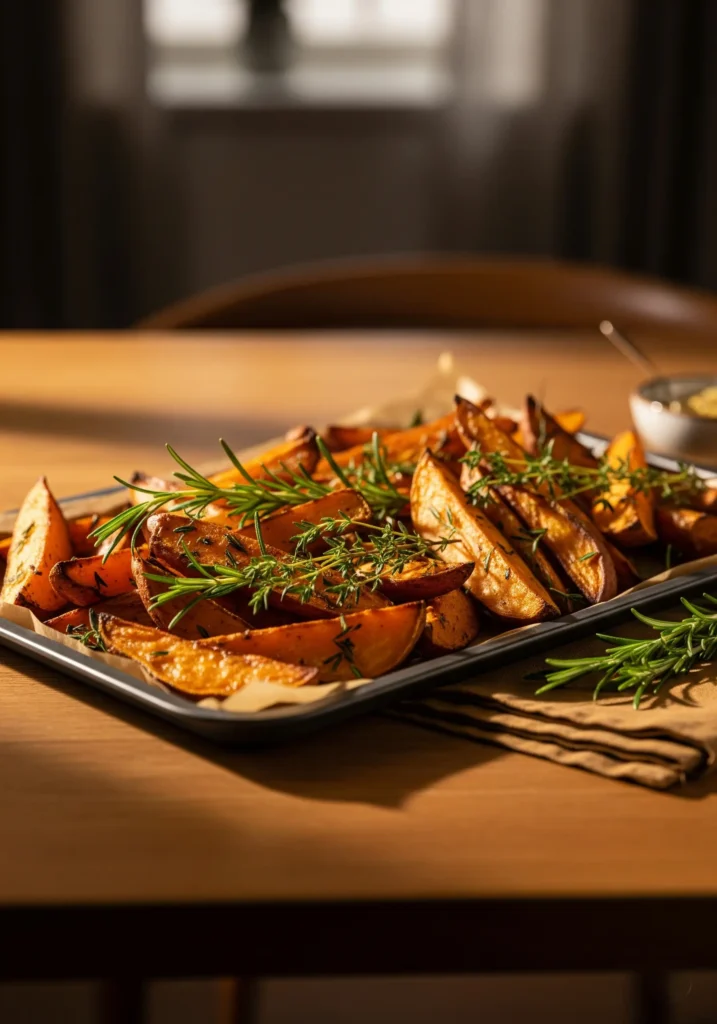
12. Dark Chocolate (in Moderation)
Surprisingly, a small amount of dark chocolate can help you sleep. It contains serotonin-boosting compounds, though you should choose varieties low in caffeine and sugar.
How to enjoy: A small square (70% cocoa or higher) makes the perfect bedtime treat.
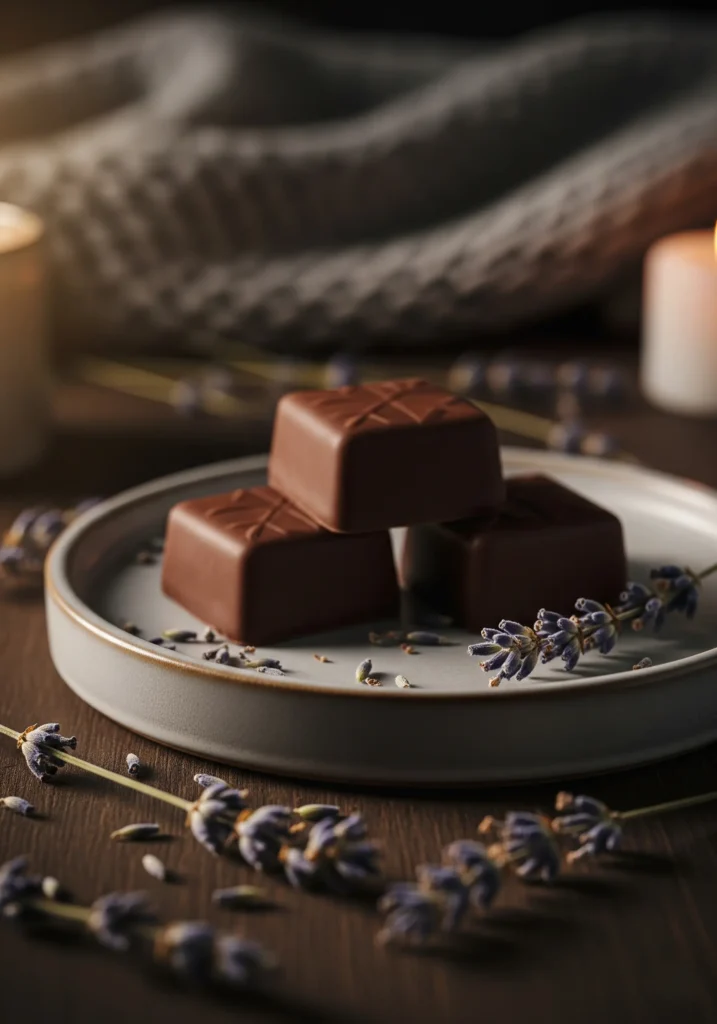
Foods to Avoid Before Bed
Just as some foods promote sleep, others can disrupt it. Avoid the following before bedtime:
- Caffeine (coffee, energy drinks, chocolate in excess).
- Alcohol – May make you drowsy initially but disrupts deep sleep.
- Spicy Foods – Can cause indigestion and acid reflux.
- Sugary Snacks – Spike blood sugar, leading to restless sleep.

Tips for Eating Sleep Inducing Foods Effectively
- Timing Matters – Eat sleep-friendly foods 1–2 hours before bed.
- Keep Portions Light – Heavy meals close to bedtime can cause discomfort.
- Pair Nutrients – Combine complex carbs (like oatmeal) with protein (like milk) for maximum effect.
- Stay Consistent – Incorporate these foods regularly, not just occasionally.
Conclusion
Improving your sleep doesn’t always require medication—sometimes, it’s as simple as adjusting your diet. The 12 best sleep inducing foods including almonds, kiwi, cherries, milk, bananas, and chamomile tea are rich in nutrients that promote relaxation and enhance sleep quality.
By incorporating these foods into your nightly routine, avoiding sleep-disrupting snacks, and maintaining consistent sleep hygiene, you can naturally achieve deeper, more restorative rest.
So tonight, instead of reaching for chips or soda, try a bowl of oatmeal with bananas or a soothing cup of chamomile tea and let nature guide you to a peaceful night’s sleep.






